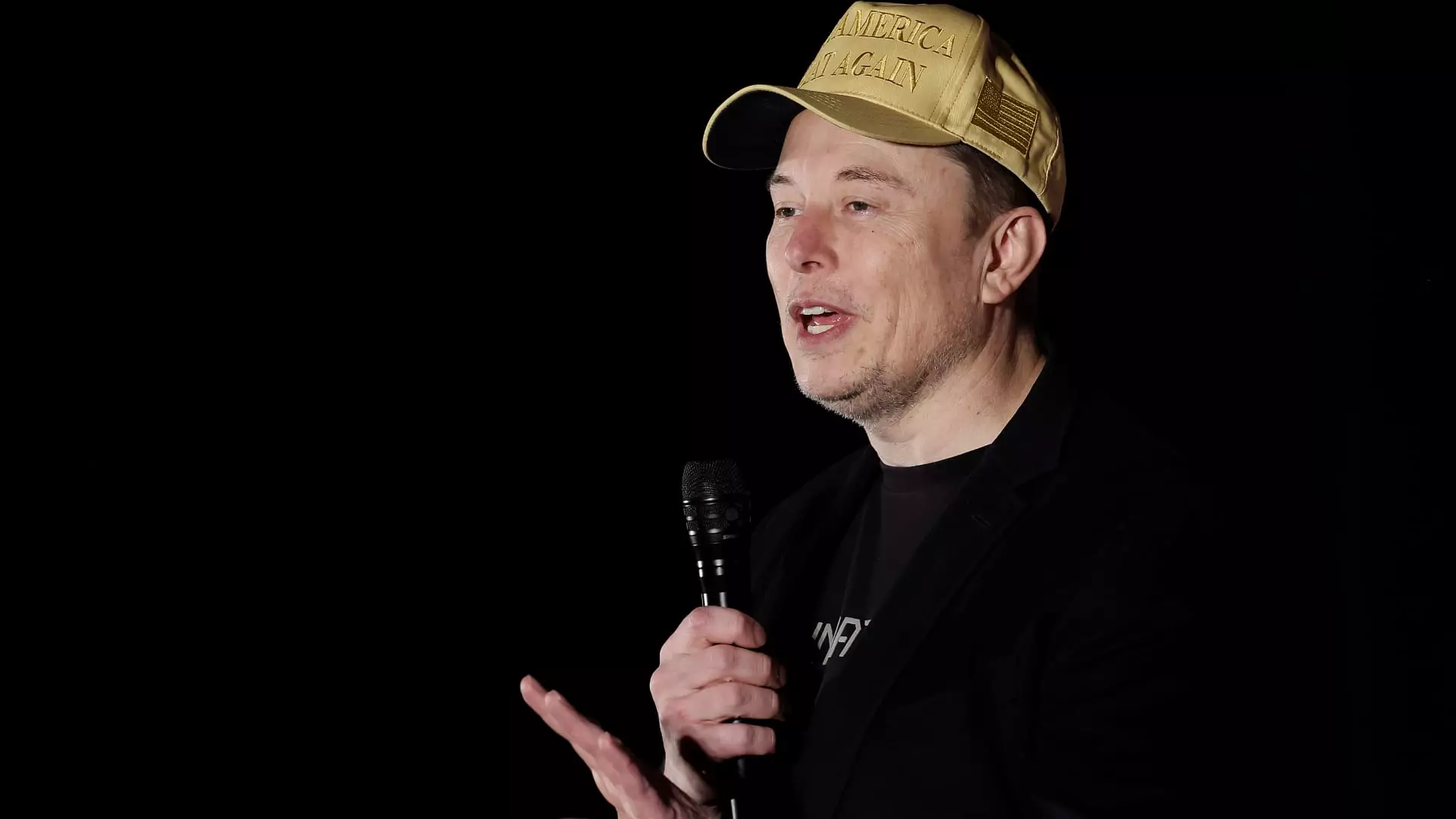In a strikingly bold move, billionaire entrepreneur Elon Musk announced on Saturday his intention to donate $1 million each day until the upcoming election to individuals who endorse his online petition advocating for the U.S. Constitution. This initiative marks Musk’s most recent foray into the political arena, as he seeks to galvanize support for Republican candidate Donald Trump ahead of the November elections. The timing and nature of this promise—as well as its implementation—have raised eyebrows and prompted discussions about the role of personal wealth in shaping political landscapes.
Without delay, Musk presented his first $1 million check to an attendee during a rally in Pennsylvania. This event, aimed squarely at Trump supporters, saw a man named John Dreher emerge as the surprise recipient. Musk’s casual declaration, “By the way, John had no idea. So anyway, you’re welcome,” served to highlight not only the dramatic nature of his pledge but also his intention to create spontaneous moments of generosity that could endear him and Trump to prospective voters. However, such attention-grabbing tactics pose significant questions: Are they genuine acts of support, or are they simply strategic moves designed to manipulate public perception?
Musk’s $1 million daily donations come at a time when the political atmosphere in the United States is more polarized than ever. By leveraging his wealth through his political action committee, America PAC, Musk aims to cultivate a robust support base for Trump in battleground states. Yet, despite these financial commitments, reports indicate that the PAC is facing challenges in achieving its voter mobilization goals. This raises concerns about the effectiveness of monetary influence versus grassroots efforts in political campaigning.
Contentious Statements and Rhetoric
During the Pennsylvania rally, Musk made provocative statements suggesting that the election’s outcome is existential in nature. He claimed that a victory for Trump’s Democratic opponent, Kamala Harris, would herald “the last election” for the United States, implying a dire consequence for the nation’s future. Such comments reflect Musk’s penchant for hyperbole and sensationalism, which may resonate with certain segments of the electorate but could also alienate others who find such rhetoric alarmist.
The petition Musk is promoting underscores his commitment to Constitutional rights, specifically the First and Second Amendments. By requiring attendees to sign the petition, Musk is not only collecting voter information but is also framing his political contributions as a defense of American liberties. However, this raises ethical questions regarding the blending of philanthropy and political maneuvering—does financial support in exchange for political backing undermine the integrity of democratic processes?
With his net worth affording him extraordinary influence, Musk’s foray into the political arena invites scrutiny and debate about the implications of billionaires in politics. As the election approaches, Musk’s actions will undoubtedly continue to ignite discussions about the intersection of wealth, power, and democratic engagement. The real question remains: to what extent can financial influence alter the political fanaticism that characterizes this particular election cycle?


Leave a Reply